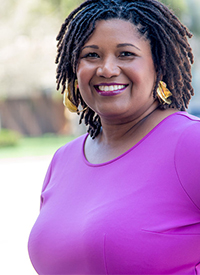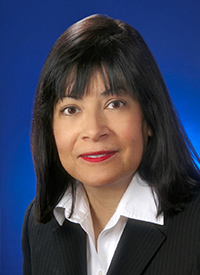CICF and other community foundations are part of Community Foundations Opportunity Network. It is a national leadership and action network of community foundations committed to narrowing this opportunity gap.
Today, fewer people have access to the American Dream and the upward mobility it promises. Our kids may not, in fact, fare better than we do. And their success is not just constrained by their smarts and industriousness, but an “opportunity gap.” In short, socioeconomic status, race, familial situations, ethnicity, community wealth and other factors contribute to and perpetuate lower educational, economic and social aspirations, achievement and attainment.
In 2015, Dr. Robert Putnam, a Harvard professor of public policy, wrote about this gap in Our Kids: The American Dream in Crisis. The New York Times bestselling book has inspired the work of community foundations around the country. In fact, 40 foundations, including Central Indiana Community Foundation (CICF), have joined the Community Foundation Opportunity Network (CFON) to create deeper awareness of the opportunity gap and a range of solutions for the communities we serve. CFON also acts as a national hub and voice around which other opportunity gap stakeholders, such as policymakers, funders and social change institutions, might coalesce.
CICF executive team members, Tamara Winfrey-Harris, vice president of marketing and communications, and Liz Tate, vice president of community investment, were among the community foundation staff members who gathered in Chicago last month for the 2nd annual CFON Learning and Action Forum, featuring keynote presentations by Putnam and Richard Reeves, a senior fellow at The Brookings Institution and the author of Dream Hoarders: How the American Upper Middle Class is Leaving Everyone Else in the Dust, Why That Is a Problem, and What to Do About It. At the daylong conference, community foundations also shared case studies from their work and attendees broke out into sessions focused on knowledge, learning and impact; policy and advocacy; and messaging/external communications.
Winfrey-Harris and Tate brought all of this information back to CICF, where we are currently at work on the strategic plan that will guide us for the next four years—a plan that will be centered on creating more equitable access to opportunity in Central Indiana. We have been researching the regional opportunity gap, gathering data and talking to a variety of communities—from rural residents of Northern Hamilton County to Chin immigrants on Indianapolis’ South Side–about the specific barriers they face. Our entire staff has also completed Undoing Racism, a two-day workshop brought to Indiana by Child Advocates that focuses on how institutional racism affects opportunity. Our goal is an impactful plan and partnerships that help ensure that every child born in Central Indiana has the same chance to grow, thrive and succeed.

Tamara Winfrey-Harris Vice-President of Marketing and Communications
What Tamara Learned
As a black woman, I am keenly aware of my community’s tenuous grasp on economic stability. It is painful to consider that future generations may not be able to sustain the gains my parents, grandparents and ancestors worked so hard for. And I know I am not the only one who lies awake thinking about this. The work of closing the opportunity gap in Central Indiana is some of the most important work I’ve been involved in.
It is going to be my job to find the right words to explain the problem of the opportunity gap to our communities, donors and stakeholders. I sat in on a presentation by a company called Frameworks that works closely with foundations and other institutions on messaging. They talked about the importance of leveraging shared community values in our conversations—a simple idea, but amazingly effectively, based on research.
I am also eager to dig into Dream Hoarders, which argues for a “broader conception of what it means to be rich.” Reeves is a compelling speaker, whose tell-it-like-it-is demeanor is tempered by British charm.

Liz Tate Vice President of Community Investment
What Liz Learned
I must admit to being a Dr. Robert Putnam fan girl. I read his book Bowling Alone and found his work relevant to what I do at CICF. Our Kids struck close to my personal journey as a product of a farming community in Central California. Dr. Putnam talks about how, before the mid 20th century, people thought of all children in their communities as “our kids” and how America benefited from that collective desire to see all children have an opportunity to excel. Even with that philosophy, access was not equal in our little town.
In my role within CICF, I attempt to bring a human element to the data and statistics what we are bombarded with daily. We must remember there are people at the end of any action we undertake. At the conference, I learned that our field has a long way to go in remembering this.
I am also eager to read Dream Hoarders. Mr. Reeves presented his book at the conference in a way that provoked some, but for me gave me hope that I am not alone in my thinking about how some middle class ideals can be a barrier to addressing opportunity and access for all.






Leave A Comment